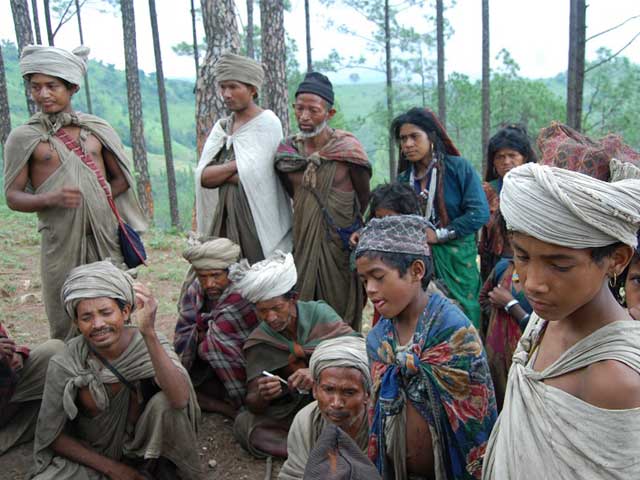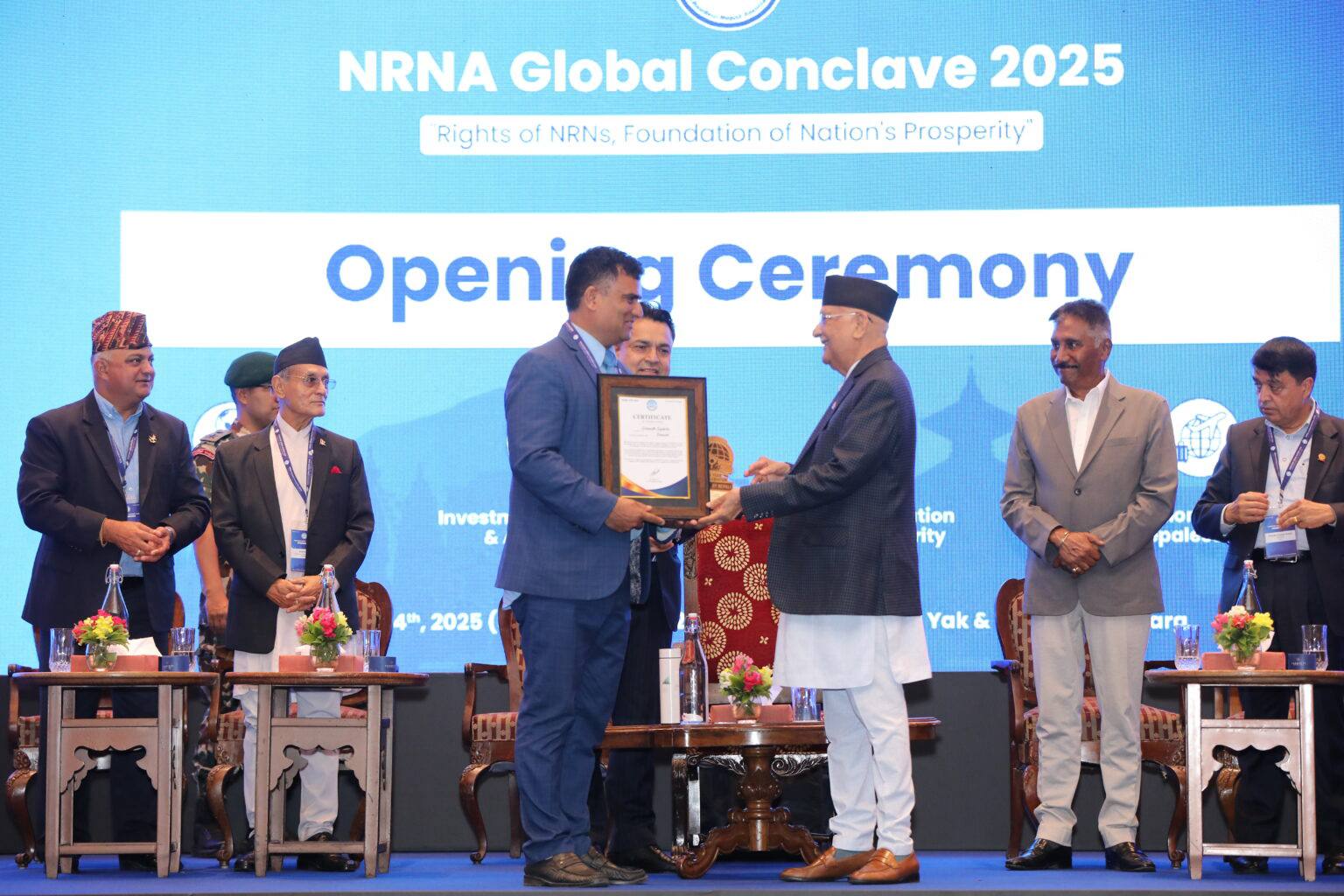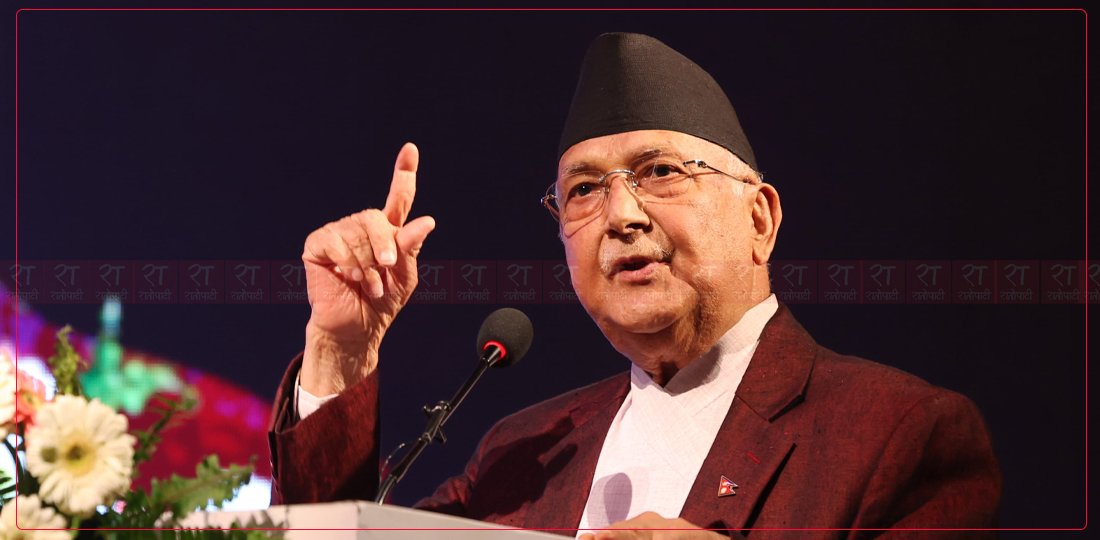Nomadic Rautes wearing facial masks as safety measure against COVID-19

Kathmandu -The Raute community people who have been surviving a nomadic life in forest now have started wearing face masks. Members of the group, which has been recognized by the government as an indigenous Khas ethnic group, are mostly residing at Bheriganga municipality-2, Chhinchukhiola in Surkhet. They are one of the most typical indigenous groups of Nepal sustaining their unique cultural identifies and livelihoods for generations.
The Rautes said that they have also started wearing masks to remain protected from widespread crisis stemming from coronavirus infection. After attending coronavirus pandemic sensitization sessions, they allowed health workers to examine their health and also started adopting protective measures. Gurans rural municipality has put in place all arrangements necessary to provide regular health checkups of Rautes. The community has total 151 members. Volunteers mobilized from the rural municipality have also taught the nomadic people how to wear facial masks to ward off coronavirus risks.
The rural municipality also has arranged measuring the fever of all Raute members and provided them with masks. The Raute settlement has also been forced to comply with lockdown orders enforced to stem the virus outbreak. They have also been banned to come out from their settlement while people from outside community are also not allowed to enter the nomadic settlements. Raute leader Mahin Bahadur Shahi said they are also wearing masks to remain safe from corona infection. He said they also need to wear protective masks and adopt other sanitation measures since the nomadic people who live together are more vulnerable to the virus disease. "We have not gone outside the settlement being adherent to the government decision", he said, adding, "We also need masks, soaps and other medical assistances".
Health worker Suman Kafle, who examined the health of Raute community people, said none of them were with high fever. Gurans rural municipality chair Khemraj Wali said regular health examination of Raute community has put in place to protect the minorities. "We will mobilize health workers anytime when it is needed", he assured. ''To date, no infection of any sorts of diseases has seen in the Raute settlement,'' he said, adding that surveillance has been stepped up to prevent the indigenous settlement from catching the virus. Regular medical checkup facilities will be ensured them, focusing on the importance of personal hygiene and community sanitation to live a healthy life. They will be encouraged to build toilets.
Rural municipality chief administrative officer Ram Bahadur Budha said the community awareness programme was the priority of the hour. The Raute people here had obtained identity cards by the local government in June, 2018. Since then, they have been obtaining care and protection by the rural municipality. Likewise, over 100 thousand has been deposited to the Disaster Management Fund set up by the local government.
Rural municipality chair Wali has contributed Rs 25,000 to the Fund, it is said. Details of the people who had recently returned the village have been collected and all of them have been quarantined following medical screening. Similarly, the rural municipality is preparing to distribute foodstuffs in the village through a cooperative-based fair price so as to prevent probability of food shortage during the COVID-19 crisis. The local government has managed a budget of Rs 1.35 million for this intuition.
Two ambulances are placed standby to transport anyone else and people in the quarantine, in case of the development of COVID-19 symptoms, to the health facilities, according to rural municipality vice chair Deepa BC. '' People are being rendered regular medical checkups through a health desk center. Quarantine facilities have been built at several locations to prevent the infection risk,'' vice chair BC said.










Leave Comment